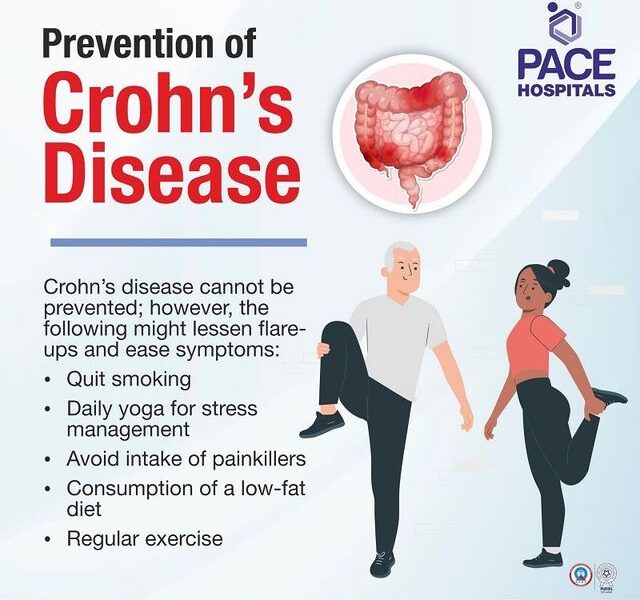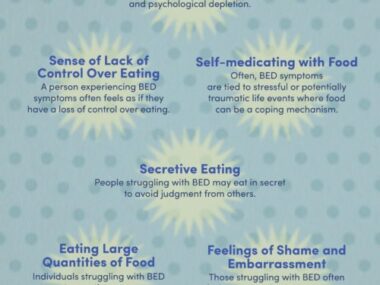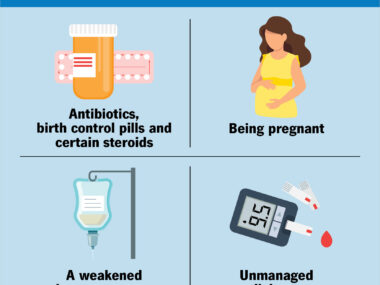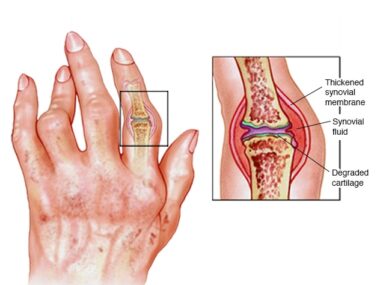What Is Crohn’s Disease And Its Treatments
Crohn’s disease is a chronic inflammatory condition that affects the gastrointestinal tract. It is a type of inflammatory bowel disease (IBD) that can cause a range of symptoms, including abdominal pain, diarrhea, fatigue, and weight loss. But what exactly is Crohn’s disease, and what are the available treatments?
Understanding the Symptoms of Crohn’s Disease
Crohn’s disease can manifest in various ways, and its symptoms can vary from person to person. The most common symptoms include abdominal pain, often in the lower right area, and persistent diarrhea. Fatigue, appetite loss, and unintended weight loss are also common. In some cases, individuals may experience rectal bleeding, fever, and joint pain.

The severity of symptoms can also fluctuate, with periods of remission and periods of flare-ups. During flare-ups, symptoms may worsen, leading to more significant discomfort and disruption in daily life. It’s important to note that symptoms of Crohn’s disease can extend beyond the gastrointestinal tract, affecting other systems in the body.
Causes and Risk Factors of Crohn’s Disease
While the exact cause of Crohn’s disease remains unknown, researchers believe that a combination of factors contributes to its development. Genetics, immune system dysfunction, and environmental factors all play a role. Having a family history of Crohn’s disease increases the risk of developing the condition.
Certain lifestyle factors can also increase the risk of developing Crohn’s disease. Smoking, for example, is a significant risk factor and can worsen symptoms in individuals already diagnosed with the condition. Other risk factors include a diet high in refined sugars and unhealthy fats, as well as living in urban areas or industrialized countries.
Diagnosing Crohn’s Disease: Tests and Procedures
Diagnosing Crohn’s disease can be challenging, as its symptoms overlap with other gastrointestinal conditions. Medical professionals rely on a combination of tests and procedures to reach an accurate diagnosis. These may include blood tests to assess inflammation levels, stool tests to check for infections, and imaging tests such as CT scans or colonoscopies.
During a colonoscopy, a thin tube with a camera is inserted into the colon to examine the gastrointestinal tract for signs of inflammation or ulcers. Biopsy samples may also be taken during this procedure for further examination in the laboratory. These diagnostic tools help healthcare providers differentiate Crohn’s disease from other conditions and determine the extent of inflammation.
Treatment Options for Crohn’s Disease
The goal of treatment for Crohn’s disease is to control inflammation, reduce symptoms, and promote healing. Various treatment options are available, depending on the severity of the condition and individual factors. Treatment plans are typically tailored to each patient’s unique needs and may involve a combination of medications, dietary and lifestyle changes, and surgical interventions.
Medications for Crohn’s Disease
Medications are often the first line of treatment for Crohn’s disease. The type of medication prescribed depends on the severity of symptoms and the location of inflammation within the gastrointestinal tract. Anti-inflammatory drugs, such as corticosteroids and aminosalicylates, are commonly prescribed to reduce inflammation and provide symptom relief. Immunosuppressant drugs and biologics may also be used to modify the immune response and prevent further damage to the intestines.
Dietary and Lifestyle Changes
In addition to medications, dietary and lifestyle changes can play a crucial role in managing Crohn’s disease. While there is no specific diet that works for everyone with the condition, certain modifications can help alleviate symptoms and promote overall well-being. Avoiding trigger foods, such as spicy foods, high-fiber foods, and dairy products, may help reduce inflammation and improve digestion. Some individuals may benefit from a low-residue or low-FODMAP diet, which limits certain types of carbohydrates that can cause gastrointestinal distress.
Surgical Interventions
In cases where medication and lifestyle changes are not sufficient to control symptoms or complications arise, surgical interventions may be necessary. Surgery aims to remove damaged portions of the intestines, repair strictures or fistulas, or address other complications of Crohn’s disease. Surgery may provide long-term relief and improved quality of life for individuals with severe or unmanageable symptoms.
Alternative and Complementary Therapies for Crohn’s Disease
In addition to conventional medical treatments, some individuals with Crohn’s disease explore alternative and complementary therapies to alleviate symptoms and improve overall well-being. These therapies include acupuncture, herbal supplements, probiotics, and mind-body practices such as yoga and meditation. While research on the effectiveness of these therapies is limited, some individuals find them beneficial in conjunction with their prescribed treatments. It is essential to consult with a healthcare professional before incorporating any alternative therapies.
Managing Flares and Preventing Complications
Managing flares and preventing complications are key aspects of living with Crohn’s disease. During flare-ups, symptoms can become severe and significantly impact daily life. It’s important to have a plan in place to manage flare-ups effectively. This may involve adjusting medications, following a specific diet, and seeking medical attention when necessary. Regular check-ups with healthcare providers are also crucial to monitor the disease’s progression and address any emerging complications promptly.
Living with Crohn’s Disease: Coping Strategies and Support
Living with a chronic condition like Crohn’s disease can be challenging, both physically and emotionally. It is essential to develop coping strategies to navigate the ups and downs of the disease. This may include seeking support from family, friends, or support groups who understand the challenges faced. Engaging in stress-reducing activities, such as exercise, hobbies, or mindfulness practices, can also help manage the emotional toll of living with Crohn’s disease.
Research and Advances in Crohn’s Disease Treatment
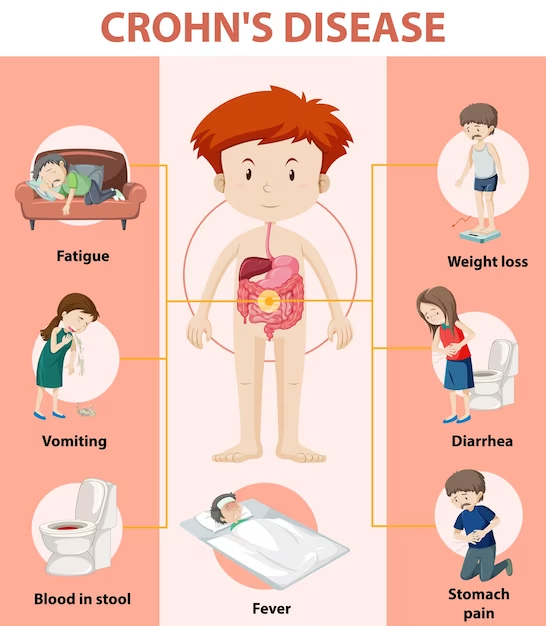
Ongoing research and medical advancements continue to shed light on Crohn’s disease and its treatment options. Scientists are exploring new medications and therapies to target inflammation more effectively and improve outcomes for individuals with the condition. Clinical trials offer opportunities for patients to participate in the development of new treatments and contribute to scientific knowledge. Staying informed about the latest research and advancements can help individuals make informed decisions about their healthcare and explore new possibilities for managing Crohn’s disease.
Conclusion: Living a Fulfilling Life with Crohn’s Disease
While living with Crohn’s disease can present challenges, it is possible to lead a fulfilling life with appropriate treatment and support. Understanding the symptoms, causes, and available treatment options is crucial for individuals and their loved ones. By working closely with healthcare professionals, making necessary lifestyle changes, and seeking support, individuals with Crohn’s disease can effectively manage their symptoms, prevent complications, and improve their overall quality of life. Remember, you are not alone in your journey, and there are resources available to help you navigate the complexities of living with Crohn’s disease.
